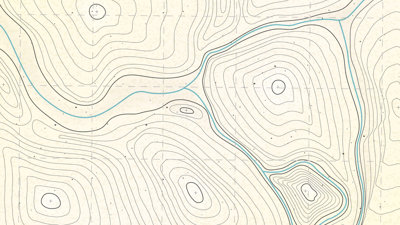How did you get to where you are now?
I studied geography at the University of Sheffield between 2013 and 2016, before joining a small consultancy firm who specialised in social research, community engagement and citizenship. In March 2018 I joined Thames Valley Police as an analyst working on the Oxford Problem Solving Team, who work on some of the most complex issues we face in policing today, including child exploitation, people with mental health issues in crisis and county lines drug dealing, to name but a few!
Was there anything particularly useful that helped you get into this role?
I got really lucky whilst doing an internship between second and third year where someone spotted my enthusiasm for all things community and social research and asked me to do some little pieces of work for them. I apparently impressed them, and on my last day at university they rang to offer me a full-time job! This only happened because I’d plucked up the courage to go and say hello to them after a workshop. Remember everyone has started where you are, so go and say hello if you are interested in what they do, you may be surprised what may happen!
What do you do as part of your role?
My role is incredibly varied. One minute I could be working on an operation helping proactive teams to identify a vehicle carrying drugs across the county, the next I can be in a meeting discussing how we deal with child exploitation in our area. As an analyst, you have to make sense of a large amount of data and turn it into useful knowledge for front-line practitioners and senior leaders alike. You are also responsible for helping people think about how to prepare, research and evaluate. As the police move more towards an evidence-base for our work, it’s a really exciting and important role that I cannot recommend highly enough!
What skills and characteristics do you need for this role, apart from geographical knowledge?
Communication is really important. You have to be able to convey quite complicated information to a range of individuals, as well as recognise that sometimes you may be telling people things they do not want to hear! Creativity is also key; to solve problems within policing we need to think more widely than ever before, so bringing some new ideas to the table will be very valuable. More than anything you need to be passionate! Policing can be a hard world to work in, but knowing you’ve gone home and made a difference makes it a lot easier.
How does geography feature in your work/what difference does it make?
So much of my work is around understanding groups of people, whether that be the structure of an organised crime group or the distribution of different ethnic groups across our area. Being able to study different groups is an inherently geographical trait, and something that I was well prepared for after my undergraduate degree. However, I think the most important skill that I bring as a geographer is some critical thinking. We are often faced with a wealth of conflicting information, so being able to judge each and use it to build together a balanced picture of something is very useful. It can be really difficult when you are studying geography to actually understand and appreciate the skills you are developing; certainly for me it’s only been since I’ve started working that I realised what I had learnt at university was really valuable!
What advice would you give to someone wanting to go in to this career?
Go for it! The camaraderie within policing is incredible; it sounds cliché but you do really become part of a family of people who all want to do the same thing that you do. Keep an eye out for jobs within your local police force and remember that studying geography has given you lots of transferable analytical and research skills that will be valuable in your application. Don’t be afraid to contact the potential line manager to speak more about the role – the key is to be enthusiastic and ready to work hard, not necessarily lots of technical knowledge.
Why did you choose geography? Why should others choose geography?
I actually ended up doing geography at university through clearing! I had studied it at A Level and enjoyed it, but when I didn’t get onto the course I wanted my Head of Sixth Form suggested I consider doing geography at university as it would give me lots of opportunities, as I wasn’t quite sure what I wanted to do. He may have been biased (as a geography teacher and general geographic nerd like me) but it ended up being the best advice I could have been given. Some people go to study geography knowing they love it, and others study it because it will give them lots of different options in the future. The key is to remember the skills you have developed and how you could apply them to whatever you want to do – you’ll be surprised what you can achieve.
Jobs in this role can attract salaries of between £26,000 - £31,000.
* This interview was undertaken in 2019 and was correct at the time of publication. Please note that the featured individual may no longer be in role, but the profile has been kept for career pathway and informational purposes.

